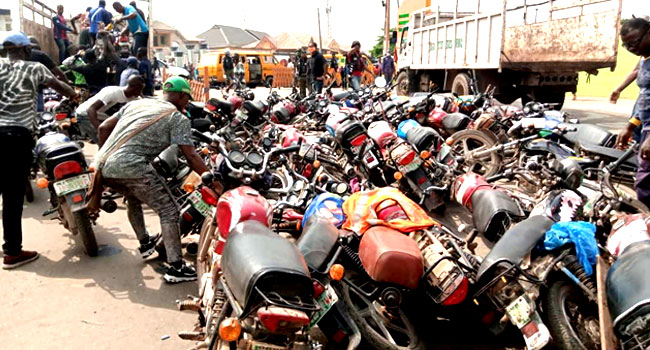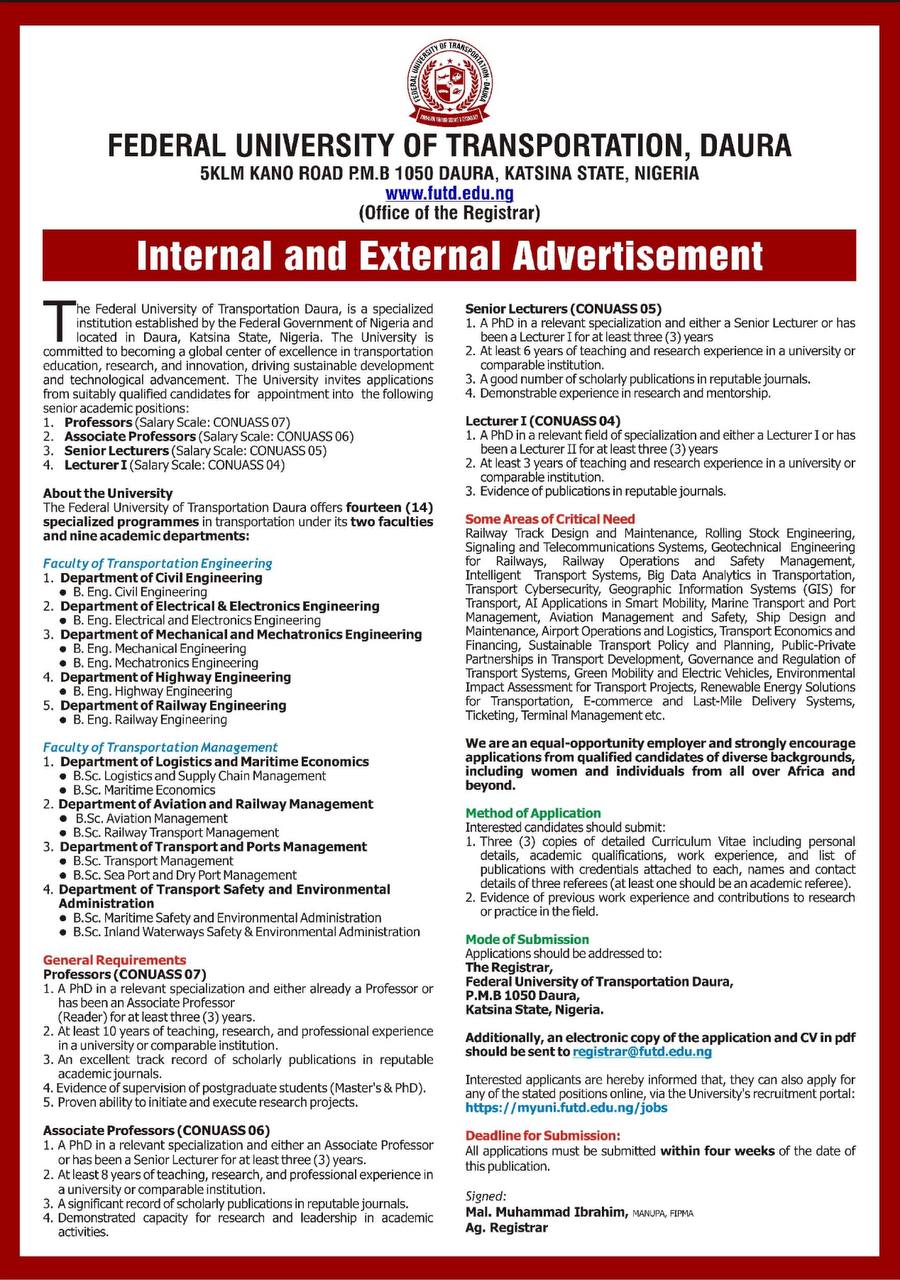According to the National Motorcycle and Tricycle Riders Association, Babangida Maihula, the association’s president, there were about eight million (8,000,000) okada riders in Nigeria as of 2014.
New research in 2022 confirmed that the okada value chain is the source of income for about twenty million (20,000,000) Nigerians with an investment worth over two hundred billion naira (N200,000,000,000.00). Aside from the okada riders, the okada value chain encompasses the merchants who sell okada spare parts, mechanics, people who work at okada assembly factories, factories making the rubber and plastics used for building Okadas, and companies that import okada into the country, among others.
Nigeria Economic Security Agenda, NESA, reacted to the ban on the operation of okada riders, saying the okada value chain embodies essential economic activities. High unemployment levels can also lead to higher rates of crime, which are vital to the country’s stability.
Governor Babajide Sanwo-Olu of Lagos state, on May 18, 2022, announced the banishment of operations of okadas in certain Local Government Areas (LGAs) such as Eti-Osa, Lagos Island, Lagos Mainland, Surulere, Apapa, and Ikeja of Lagos state. The ban took effect on June 1, 2022.
A report from the state commissioner of police says statistics have shown that hoodlums and other criminals use okada as a means of escape from scenes of crime. This act has contributed to a more significant percentage of crimes such as armed robbery, cultism, kidnapping, murder, burglary, and stealing in the state. Another report from the commissioner of information and strategy, Mr. Gbenga Omotosho, says that one thousand, seven hundred and twelve (1,712) okada-related accidents have been recorded in Lagos state in the first quarter of 2022.
SEE ALSO: PHOTOS: Tears flow as traffic offenders beg bidders at Lagos auction
The commissioner for transport in Lagos state, Dr. Frederic Oladeinde, announced the extension of the okada ban to four local councils and local council development areas on August 18. These areas include Kosofe Local Government; Ikosi-Isherri LCDA, Agboyi-Ketu LCDA, Oshodi-Isolo Local Government; Isolo LCDA, Shomolu Local Government; Bariga LCDA and Mushin Local Government; Odi-Olowo LCDA. The extension is a result of the positive effect of the first phase of the total ban, which has reduced the crime rate and okada-related accidents.
Following the ban on the operation of okada riders in Lagos, okada riders have been relocating to neighboring states. The citizens of some parts of Ogun states, such as Giwa, Akure, Agbado, and Oke-Aro, have started to show concerns with the daily increase of okada riders (especially northerners) in their environs. The citizens have started to feel concerned and insecure due to the daily influx of northern okada riders in their city and no longer feel safe in their homes.
The Ogun state government reacted to the relocation of okada riders into Ogun state by declaring that the state can’t accommodate such numbers of okada riders. Therefore they will come up with a clear policy to address the issue as they cannot afford to jeopardize the safety of the citizens.
The Ogun state government also made it clear that her doors are only open to foreign investors ready to invest, take advantage of the state’s large industrial base and increase the state’s status as the most industrialized state in the nation.
The Oyo State Governor, Mr. Seyi Makinde, reacted to the ban on okada riders in Lagos state. He stated that Oyo state would not ban okada riders but rather fish out the criminals amongst them and deal with them accordingly. The governor mentioned that Lagos state’s state of affairs and reality differs from that of Oyo state. He also said a ban on okada riders would increase unemployment and take many out of business. The governor mentioned using an identity management system to know every state citizen, and this process would start with okada riders. The identity management system project will help in the area of security.
The Kwara state government has increased its security measures in response to the ban placed on okada riders and the increased relocation of okada riders to neighboring states. The Commander of police in the state has instructed higher-ranking police personnel to increase security measures in their area of responsibility using effective mobilization of local security groups such as vigilantes, hunters, etc.
Nigeria Economic Security Agenda, NESA, reacted to the ban and restrictions placed on the operation of okada riders, saying the okada value chain embodies essential economic activities. The body also noted that the prohibition and restrictions on okada would affect the means of livelihood of many citizens, and the high level of unemployment can also lead to higher rates of crime which are vital to the stability of the country.
The big question now is, what is the way forward?
Place a ban on okada riders to reduce the crime rate and okada-related road accidents, thereby increasing unemployment in the country, or let okada riders operate freely and risk the feared increase in insecurity in the country?













